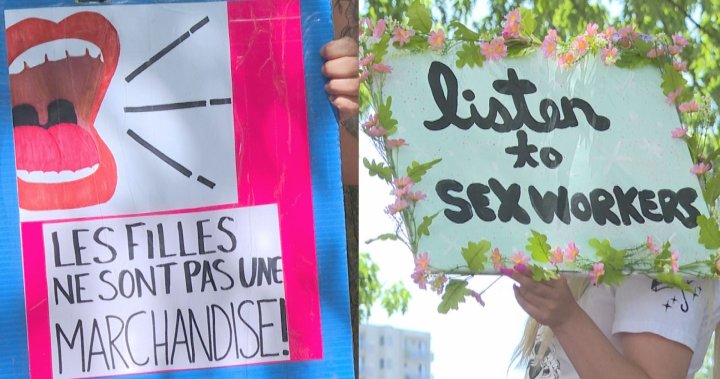The 4th World Congress for the Abolition of Prostitution recently took place in Montreal, with the primary goal of gathering front-line workers who support survivors and ending the sexual exploitation of women and girls. Many workshops and panels at the event focused on the vision of a world without prostitution, with organizations like La CLES working towards this goal. According to Jennie-Laure Sully, a community organizer at La CLES, a world without prostitution is possible if there is equality between men and women, as well as between countries. She also noted that prostitution disproportionately affects women from the global south, poor women, and Indigenous women.
Indigenous survivor April Eve Wiberg from Alberta emphasized the historical impact of European contact on Indigenous women and girls, who have been viewed as objects since that time. Wiberg believes that Indigenous people need to reclaim their traditional roles and not feel pressured to sell what is most sacred in order to survive. She also highlighted the importance of events like the congress, where survivors have the opportunity to share their stories and connect with others who may be suffering in silence but can find support.
A counter-protest against the congress was also held, led by pro-sex work activists who oppose the abolition of prostitution. Adore Goldman, a sex worker and activist with the Sex Workers Autonomous Committee, explained that while they acknowledge the presence of exploitation in the sex industry, they believe that organizing as workers is the best way to address this issue. The activists argue against the criminalization of any aspect of the sex trade, as they believe it puts sex workers at increased risk. However, abolitionists like Sully believe that while Canada’s Protection of Communities and Exploited Persons Act does not criminalize selling sex, the legislation is not effectively enforced.
The disagreements between abolitionists and pro-sex work activists stem from differing perspectives on the best way to address exploitation in the sex industry. While both groups recognize the presence of exploitation, they advocate for different approaches to combatting it. The congress in Montreal served as a platform for survivors, activists, and organizations to come together and discuss these complex issues. Despite their diverging views, all parties involved share a commitment to supporting survivors of sexual exploitation and working towards a safer, more equitable future for all individuals involved in the sex industry. The ongoing discussions and debates surrounding prostitution continue to shape the dialogue around this contentious issue and highlight the need for ongoing collaboration and advocacy to address the root causes of exploitation.













